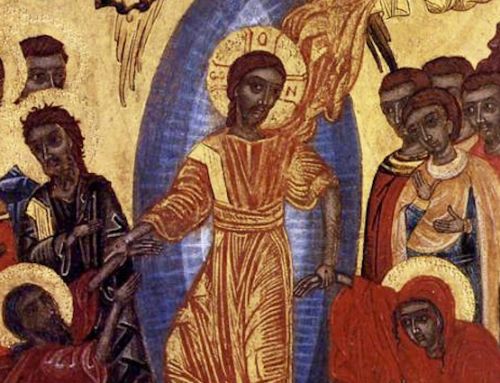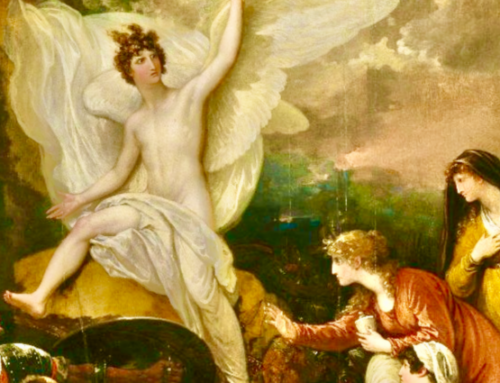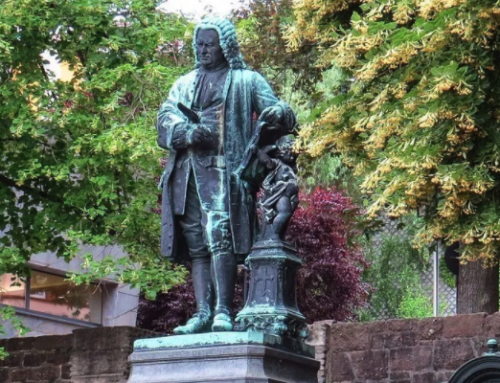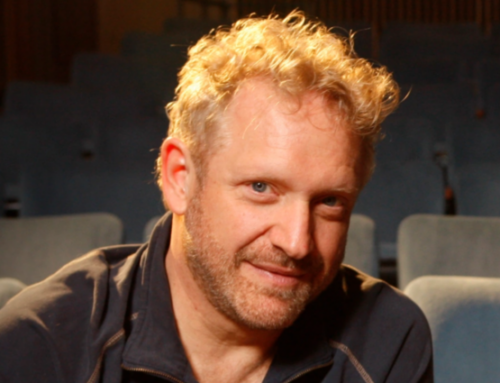 I greatly enjoyed reading Roger Scruton’s “Groans Wrapped in Mathematics,” published here recently. However, it raises as many questions as it answers. How and why has this lamentable state of affairs—postmodern classical music that hardly anyone likes, foisted upon the public—persisted for so many decades? Why do opera companies and orchestras continue to program music they know their audiences will hate, and which even hurt their ticket sales? After thirty years immersed in this world as a university professor of composition (now emeritus), I believe I can provide some answers.
I greatly enjoyed reading Roger Scruton’s “Groans Wrapped in Mathematics,” published here recently. However, it raises as many questions as it answers. How and why has this lamentable state of affairs—postmodern classical music that hardly anyone likes, foisted upon the public—persisted for so many decades? Why do opera companies and orchestras continue to program music they know their audiences will hate, and which even hurt their ticket sales? After thirty years immersed in this world as a university professor of composition (now emeritus), I believe I can provide some answers.
First, at some point around the end of the 19th and early 20th century, the patronage system waned, and support of composers transitioned away from private donors, mostly to academia. Composers began to earn a faculty salary for their personal livelihood, while governments and arts organizations sometimes paid the expenses related to the performance and recording of their larger works for orchestra and opera. Chamber works by faculty composers were (and still are) performed gratis at their school by their colleagues on the performance faculty, for example faculty string quartets and woodwind quintets.
Trying to squeeze music composition into the university tenure system has always been tricky, though. In America, the tenure committees of the music department itself ultimately has had to please the wider university committees or administrators who must finally approve a composition professor’s tenure. While a philosophy professor applying for tenure may have published a certain number of articles in certain prestigious journals, read a paper at an important conference, and had at least one book published by a respected publisher, a composer may only have a list of compositions that were performed in scattershot locations, or a self-paid CD album of compositions, or perhaps they won a composition contest for new music for bassoon, none of which look terribly impressive or comparable to the philosophy professor. If composers all had to win a truly important recognition, like the Pulitzer Prize in Music or a Grammy Award to gain tenure, there would be very few tenured composition professors indeed to fill hundreds of university composition positions.
For a long time, there was a push to have one’s sheet music published, as if that might be seen by committees as comparable to liberal arts or science professor’s having an article published. However, sheet music publishers only go to the expense of publishing music that will sell enough copies to make a profit, like pieces for school choirs and bands, which are not “serious” enough to earn tenure. Some publishers of serious music arose, either as a vanity press or underwritten by grants, but still this did not seem a great measure of merit by which to evaluate a composer’s work, since it could often be bought. And with the advent of digital publishing, the old publishing houses are not being used as much by today’s rising composers, who see no need to share the profit with them when they can e-mail off a pdf of the score themselves and receive a PayPal fee through their own website.
Around the middle of the 20th century, contemporary composers began to form organizations and hold conferences at which their music could be performed, in such a way that on paper it would appear to tenure committees comparable to a non-music professor reading an academic paper at a professional conference, itself taken as a measure of stature in that profession. The oldest of these organizations is the League of Composers, founded in 1923. Soon any number of these academic composing organizations and sub-chapters arose, like the Southeastern Composers League, founded in 1950, and the more loosely organized but long-running Midwest Composers Symposium, hosted alternately by various Midwestern universities.
I participated in several of these conferences in my youth and found them to be three-day marathons of new music recitals by composers looking both to hear their work and earn a line on their tenure application. Some of the music was receiving its first performance and the only performance it would ever receive, complete with a cassette tape of it to take home. In front of an audience of a hundred or more academic composers, there was an unwritten kind of peer pressure to write in some kind of Modernist or postmodern style. A traditional melodic piece would either not be accepted on the program, or just not submitted in the first place.
Frankly, as a young composer, for me it came down to a choice. Either I compose in a style that would gain the imprimatur of one or more of these organizations, along with the networking and outside letters of support I would need for tenure, by which I could continue to earn a salary to feed my family; or I could write in a style that my wife and friends would actually enjoy, but have to find some other way to earn a living.
Growing out of these organizations eventually came super-funding sources that largely helped performing organizations, but with a component to foster the creation of new compositions. So the National Endowment for the Arts, for example, might have as an arm of its work various contests for new compositions funded directly or through New York’s “Meet the Composer” organization, which itself merged in 2011 with the non-profit American Music Center. In turn, state arts councils may receive funding from such organizations and award a portion of that to their state’s city orchestras, opera and ballet companies.
Typically, one of the requirements for performing organizations to win this kind of funding, for many a crucial portion of their operating budget, is to show that they encouraged the creation and performance of “new music.” The main source of new classical music being the universities, that pipeline would feed them works that were either written by professors of composition or their like-minded alumni. This explains why much unattractive music still gets programmed, even though the organization knows most of the audience will dislike it. They may even take a hit at the box office for programming it, especially in the case of opera companies, but this is presumably offset by the grant money they can get for programming it. And in some cases, the conductors and people who program this kind of music are cut from the same academic cloth and genuinely do like it, and feel they must “educate” their provincial audiences to hear it.
But why do universities keep producing these kinds of composers, generation after generation? First, because there is often a culture of tremendous peer pressure within the inbred and isolated ivory tower to conform to an acceptably sophisticated musical style. Students who do not conform will either not be accepted in the first place, not make it to graduation, or not get a good recommendation or acceptance into the crucial next step (toward a professorship of their own) of graduate school. Second, because those composition teachers themselves were only trained in that style, as were their own teachers, they no longer know how to write anything else, nor how teach it. I worked for years as a professor under the radar to become self-taught in a traditional classical style in the model of the early 20th-century symphonists like Sibelius, Ravel, and Vaughan-Williams until I began to be blackballed and disapproved of (fortunately by then I did have tenure).
In short, it is all a self-perpetuating, vicious cycle that continues to this day. The pieces of its mechanism at every level are interfaced and locked together in such a way that something radical would have to happen to break through it. My own goal is simply to try to write beautiful music that earns an audience on its own merits and provides a role model to young composers, and to keep being a voice crying in the wilderness for a return to beauty, as it were. You can hear from the music on my website whether I ultimately become the hero or the goat, as Charlie Brown would say, at www.michaelkurek.com. For now, I simply enjoy writing the kind of music that I would like to hear myself, if I were seated in the audience.
The Imaginative Conservative applies the principle of appreciation to the discussion of culture and politics—we approach dialogue with magnanimity rather than with mere civility. Will you help us remain a refreshing oasis in the increasingly contentious arena of modern discourse? Please consider donating now.
The featured image is courtesy of Pixabay.







Wonderful article, professor!
I have participated in a few of these competitions myself, and it does seem that avant-garde is less about “complexity” and more about “mathematics”. Of course, mathematics only serves a higher purpose when its end-goal is beauty. I for one love multi-tonal music, but I never could get behind postmodern ensemble mediums and “experimental” music
Interesting, have always wondered how music so innately unlikable has survived. “Groans wrapped in mathematics” is wonderfully apt.
I am not quite sure what Sir Roger and Mr. Kurek mean in referring to postmodern music. You have the atonal modernism that grew out of Schoenberg and Webern, which had its heyday from perhaps the 1950s through the 1970s. Then you had the reaction to this in the form of simpler, tonal, repetitive music like minimalism, the spiritually inspired music of Arvo Part, etc. Some people would refer to this music as postmodern – i.e., music that reacts against avant-garde modernism by going in the opposite direction toward tonality and simplicity. And before all this took place, you had mainstream 20th-century concert music – e.g., Stravinsky, Hindemith, Prokofiev, Shostakovich, Copland, etc., etc. It seems to me that, for clarity’s sake, it would be useful to make these distinctions in sorting through that big thing we call “modern music.”
Thanks. Indeed “postmodern” is a slippery word. It would literally seem to indicate “after modern”, which could be anything. Within the profession, it mostly implies the prevailing technique now of eclecticism — the complex juxtaposition or layering of quotations from all kinds of music. I first encountered it when George Crumb quoted Schubert’s “Death and the Maiden” in his otherwise dissonant, amplified string quartet “Black Angels”, and then in my own teacher William Bolcom’s work that shifted radically from moment to moment between atonal, jazz, pop, quotes from old Romantic composers, etc., of which his fifth symphony and his “Songs of Innocence and Experience” are quintessential examples. More recently, Michael Daugherty, one of the most played composers by orchestras now, took that method to new heights, especially in his chaotic use of pop-culture elements, as in his symphony based upon the comic book hero Superman. John Adams took minimalism in that direction by layering all sorts of things in a collage over a minimalist foundation, which Michael Torke and David Lang took in a more eclectic direction by making a collage of quotes (of older classical styles or of pop music licks) over a minimalist background. All of this music brought back tonality (or at least moments of it) and became more accessible and entertaining. For me, though, it became a music of self-conscious references — “Now he’s doing this, now he’s doing that” — as opposed to truly narrative music in traditional style, in which one enters a narrative vicariously and loses oneself in it. There is a scene in the movie “Braveheart” that illustrates (accidentally) what I’m talking about. In one scene, there can be seen a Volkswagen parked in the background of a 14th century battle. At once, the spell is broken. But this is what Postmodernism does on purpose. It is “art about art” rather than “art about life”. It represents for me a kind of contemporary crisis of faith in our culture, because I can no longer believe in such a piece of music or lose myself in it. It’s all a clever wink and a nod. However, I hasten to cite as exceptions the composers you name, like Part, Gorecki, Tavener, the so-called spiritual minimalists. They do not necessarily always give you a narrative, but their very slow, haunting version of minimalism gives you something closer to, say, Gregorian chant — consonant and contemplative. So, while they may fall under the label of postmodern chronologically, their music is not eclectic and is attractive to many people who dislike the atonal Modernists and eclectic postmodernists. Pardon me for not spelling all of this out more carefully and for allowing me to clarify now.